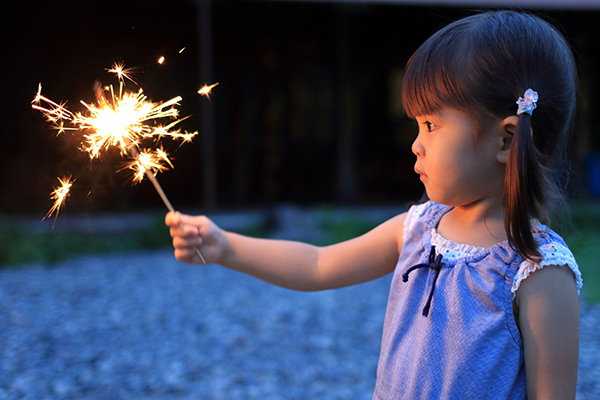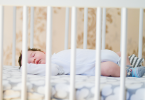The Fourth of July is one of America’s favorite holidays. It’s our nation’s birthday, and most people like to top off the celebration with fireworks. Although fireworks are fun and colorful, they can be dangerous to everyone around.
On average, about 200 people will go to the ER with fireworks-related injuries each day around the Fourth of July holiday, according to the Consumer Product Safety Commission.
Most of the injuries we see involve burns. For example, a sparkler can burn as hot as a blow torch; and, unfortunately, we have had to treat children with sparkler burns several times. But these are avoidable injuries, if families will carefully follow safety procedures.”
Here are some tips that I recommend to help keep your July 4 fun:
- Always read and follow directions on the label carefully.
- Adults should always supervise young children when around fireworks. Even sparklers, which are assumed to be safe, should be supervised, as they can reach to 1000 degrees, and can cause severe burns.
- Never allow children to ignite fireworks. Keep them a safe distance away while it’s being lit.
- If a firework is deemed a “dud” after not going off once lighted, do not stand near it to see what’s wrong. Instead, wait 15-20 minutes; then put the “dud” out with water and dispose of it.
- Never shoot fireworks off in metal or glass containers. Instead light them outdoors on a smooth, flat surface away from homes, leaves, or other flammable materials.
- Don’t allow children to point or throw fireworks at others.
- Always keep some type of water source on hand in case of fire. A large bucket of water or garden hose will do the trick.
- Light fireworks one at a time. Lighting multiple fireworks simultaneously could result in the person setting the fireworks to catching fire or being hit by a firework that goes off early.
- Do not use fireworks where prohibited by law. However, if they are legal in your area, be sure to buy them from a reputable seller.
As you gather for your holiday parties, cookouts or barbecues, keep these tips in mind. Minor burns can be treated with basic first aid, for major burns seek emergency attention.




